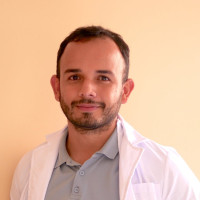Pandemics & Infectious Diseases
Medical Treatment & Drug Development
Bacteria & Other Microorganisms
Vaccines
Antimicrobials, Antibiotics & Drug Resistances
Clinical Data & Trials
Post-Doctoral Fellowships
United States
2011.10.09
Population Genomics of Emerging Pneumococcal Clones in a Vaccinated Community
Understanding the cloning strategy of the enemy
Immunization Week: How do bacteria become resistant?
Interview by Olivier Monod, published on 21/04/2014 at 13:35
Bacteria can become resistant to vaccines, just like they can become resistant to antibiotics. Nicholas Croucher, a researcher at Harvard supported by the AXA Research Fund, explains how Streptococcus pneumoniae bypasses the vaccines designed to target it.
In French: Semaine de la vaccination: comment les bactéries deviennent résistantes
How long can it take for Streptococcus pneumoniae to adapt to the vaccine?
For the PCV7 vaccine, which I am working on, some resistant strains emerged two or three years after the vaccination campaign began. By sequencing the genomes, we discovered that the mutants already existed before the vaccination campaign, but they were very rare. The vaccine enabled them to spread.
This suggests that the emergence of clones that are resistant to the vaccine is quite rare and slow. However, we need to continue to monitor the bacterial population, as new variants that are not affected by the vaccine could emerge in the future.
How does the vaccine that you are working on against Streptococcus pneumoniae work?
The polysaccharide conjugate vaccines (PCV) that protect against Streptococcus pneumoniae are highly effective against certain strains that cause the disease. They protect both adults and children, which is a real breakthrough in the fight against Streptococcus pneumoniae: previous vaccines were only effective in adults.
However, there are over 90 different strains of “pneumococcal” bacteria. PCV7 protects against 7 of these. Some new vaccines can reach up to 13. The most aggressive and antibiotic-resistant strains are targeted.
How do the bacteria adapt to the vaccine?
Streptococcus pneumoniae have high genetic variability. They can therefore evolve rapidly by exchanging genes between individuals. This makes it difficult to target the entire population with a vaccine. The PCV7 vaccine, which I am working on, only protects against a fraction of Streptococcus pneumoniae. Therefore, some strains are “resistant” because they were never targeted by the vaccine. Also, the strains targeted by the vaccine can develop resistance through mutation in the same was as antibiotic resistance.
Can a disease that has been eradicated through a vaccination campaign come back?
If the bacteria responsible for the disease is eliminated, then no. But if a reservoir of microbes exists somewhere in the world, then it is possible for a resistant mutant to emerge and spread through air travel. That’s why international coordination of efforts in terms of health is critical.
The path to research
Nicholas Croucher became a researcher because of a deep interest in evolution. From there, studying the adaptation of bacteria to therapeutic treatments was the obvious path. “It’s the best way to observe evolution in measurable time.” Nicholas Croucher is a postdoctoral fellow at Harvard University. His vaccine research is supported by the AXA Research Fund.
To add or modify information on this page, please contact us at the following address: community.research@axa.com

Nicholas
CROUCHER
Institution
Harvard University
Country
United States
Nationality
British
Related articles
Medical Treatment & Drug Development
Terresterial Biodiversity
Agriculture, Crops & Soil Health
Biotech- and Nanotechnology
Insects & Microorganisms
Vaccines
Post-Doctoral Fellowship
Argentina
Harmless and Eco-Friendly Solution as an Alternative to Replace Synthetic Agrochemicals
Agrochemicals were introduced to protect crops from pests and enhance crop yields. However, they have become a long-standing concern due... Read more

Johan
RODRIGUEZ MELO
Instituto de Agrobiotecnología del Litoral
Mental Health & Neurology
Pandemics & Infectious Diseases
Women's Health
Covid-19
Mental Disorders, Anxiety & Depression
Pregnancy & Maternal Health
Neurodevelopmental Disorders
AXA Award
Spain
2020.08.31
The Effects of the COVID-19 Pandemic on the Mental Health of Mothers and Newborns
Early results are expected in less than 12 months and will help bridge a critical gap in research. Indeed, “in... Read more

Maria
FORASTER
